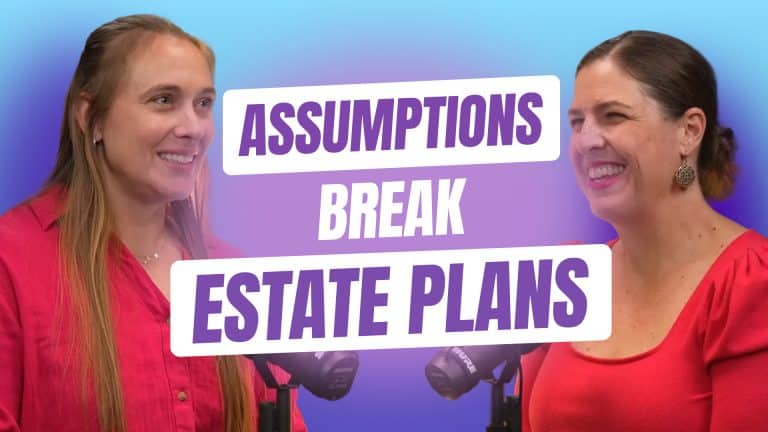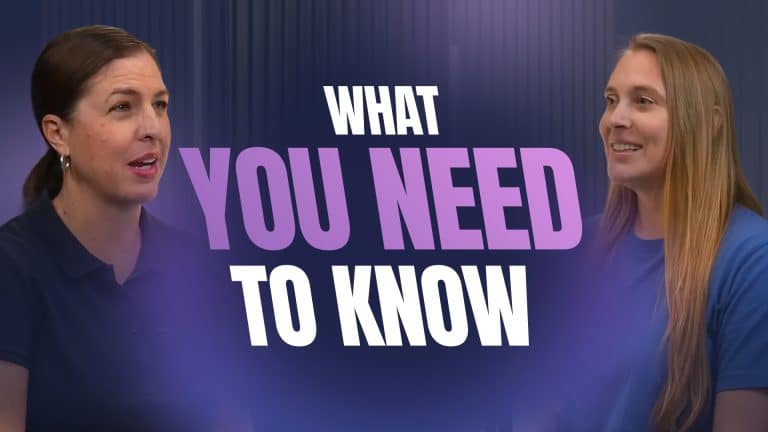Table of Contents
Las Vegas is a city built on taking chances, but there’s one gamble that too many long-term couples are taking without realizing the stakes: living together for decades without getting married or creating proper estate planning documents. While the decision to remain unmarried is perfectly valid and increasingly common, it comes with serious legal blind spots that can devastate your partner and everything you’ve built together.
The harsh reality is that in Nevada, it doesn’t matter if you’ve been together for five years, ten years, or even thirty years; without the right legal documents, you and your partner are complete strangers in the eyes of the law. And when tragedy strikes, that legal invisibility can destroy lives, relationships, and financial security in ways that most couples never anticipate.
Nevada Doesn’t Recognize Your Relationship, No Matter How Long You’ve Been Together
Unlike some states that recognize common law marriage after a certain period of cohabitation, Nevada has no such provision. You could have shared a home, raised children, built businesses, and intertwined every aspect of your lives for decades, but legally, you have exactly the same rights as any random person walking down the street.
This isn’t just a technicality that matters only in extreme situations. It affects fundamental aspects of daily life that most married couples take for granted, and the consequences become devastating when one partner faces a medical emergency or dies unexpectedly.
The Hospital Nightmare: When Love Doesn’t Equal Legal Authority
Picture this scenario: You and your partner have been together for twenty years. You share everything – a home, finances, maybe even children from previous relationships. One day, your partner is in a serious car accident and ends up in a coma at the hospital. You rush to their bedside, desperate to be involved in their care and make critical medical decisions.
But the hospital staff won’t let you.
Without a Healthcare Power of Attorney or Advanced Directive specifically naming you, medical professionals have no legal obligation to listen to you or even give you information about your partner’s condition due to HIPAA privacy laws. If there’s any dispute with biological family members – even ones your partner hasn’t spoken to in years – the hospital may defer to blood relatives or wait for a court order rather than risk liability.
You could be the person who knows your partner better than anyone else in the world, but legally, you’re nobody. The practical reality is that if you bring them to the hospital and there’s no immediate family dispute, medical staff may work with you informally. But the moment anyone challenges your authority, you’re powerless.
This isn’t just about making end-of-life decisions. It affects everything from choosing doctors and treatment options to accessing medical records and even visiting during restricted hours. While married spouses automatically have these rights, unmarried partners must explicitly document them or risk being locked out during the most critical moments.
Property Rights: Your Money, Their House, Someone Else’s Inheritance
Real estate ownership is another area where unmarried couples face devastating surprises. Consider a common scenario: you and your partner decide to buy a house together, but for credit or liability reasons, only one person’s name goes on the title and mortgage. Maybe you contributed to the down payment, helped with renovations, or paid the mortgage for years. You consider it “our house” and assume you’d inherit it if something happened to your partner.
You would be wrong.
If your name isn’t on the title and there’s no will or trust specifically leaving you the property, you practically have no claim to the house. When your partner dies, that property becomes part of their estate and will be distributed according to Nevada’s intestate succession laws. The house will pass according to Nevada law and unmarried partners aren’t provided for under Nevada law.
This means that even if you contributed significantly to purchasing the home and lived there for decades, your partner’s estranged relatives could inherit the property and potentially force you out. You could lose not only your home, but also any financial investment you made in it.
The same principle applies to other major assets. That car you helped finance? Not yours. The vacation home you both saved for? Not yours. Any property titled solely in your partner’s name becomes part of their estate, regardless of how long you have been together.
Bank Accounts: Being a Signer Doesn’t Make You an Owner
Many unmarried couples believe they’re protected if they’re signers on each other’s bank accounts, but this creates a false sense of security. Being authorized to sign checks or make withdrawals while your partner is alive doesn’t give you any ownership rights to those funds after they die.
When your partner passes away, their individual accounts become part of their estate, even if you have signature authority. The bank will freeze the account until the estate is settled through probate court. This can leave you without access to funds you may have contributed to or relied on for living expenses, mortgage payments, or other essential costs.
The only way to ensure automatic access to shared funds is through joint accounts with survivorship rights or by being named as a pay-on-death beneficiary. Without these specific designations, you could find yourself unable to access money you helped earn and save, potentially facing a financial crisis during an already devastating time.
The Probate Nightmare: Where Time and Money Disappear
When someone dies without proper estate planning documents, their assets must go through probate court. This means if assets were held in one person’s name, virtually everything gets caught in this expensive, time-consuming legal process.
Probate in Nevada typically takes a minimum of three to nine months, but can stretch much longer depending on the complexity of the estate and any disputes that arise. Before the initial appointment of an administrator or executor, no one has legal authority to access your partner’s assets, make financial decisions, or even continue operating any shared businesses.
The costs are substantial and come directly out of the estate. Attorney fees alone can range from several thousand to tens of thousands of dollars. Court fees add another layer of expense. If there are disputes among potential heirs, litigation costs can quickly spiral into devastating territory.
But the financial costs are just the beginning. The practical consequences can be far worse.
When Time Kills Businesses and Dreams
If your partner owned a business – whether a small service company, consulting practice, or any other venture – the probate process can destroy everything they built. Most businesses require immediate decisions and actions to survive. Bills need to be paid, clients need to be served, employees need direction, and contracts need to be fulfilled.
During probate, no one has the legal authority to make these decisions or access business accounts. If your partner was the licensed contractor, attorney, or other professional, the business may lose its ability to operate legally without proper succession planning. Clients will leave, employees will find other jobs, and contracts will be canceled.
By the time probate is completed or someone gains legal authority over the business, there may be nothing left to inherit. A profitable enterprise that could have provided financial security for years can evaporate in a matter of months due to legal limbo.
This is particularly devastating for service-based businesses where the owner’s personal involvement was central to operations. A thriving plumbing company, law practice, or consulting firm can become worthless if it can’t operate for several months while courts sort out legal authority.
The Real Cost of Doing Nothing
Let’s talk about the actual dollars and cents of failing to plan properly. When someone dies without estate planning documents, the costs pile up quickly:
Immediate costs:
- Death certificate fees and processing delays (3-4 weeks minimum)
- Attorney fees for probate proceedings (often thousands of dollars)
- Court filing fees and administrative costs
- Potential personal representative fees
Ongoing costs:
- Mortgage payments on property you can’t access
- Insurance premiums to keep policies active
- Property maintenance and utilities
- Business expenses with no legal authority to operate
Opportunity costs:
- Property values declining due to lack of maintenance
- Business revenue lost during legal limbo
- Investment accounts potentially losing value
- Time away from work to handle legal proceedings
Hidden costs:
- Having to maintain your own living situation while covering costs for your partner’s property
- Potential foreclosure proceedings if mortgage payments lapse
- Penalties for nonpayment
- Emotional and psychological toll of navigating legal system while grieving
The stress of potentially losing a shared home while dealing with bureaucratic delays adds insult to injury during an already difficult time.
Why DIY Estate Planning Often Makes Things Worse
Faced with the complexity and cost of proper estate planning, many couples turn to online templates, AI-generated documents, or other do-it-yourself solutions. While these options may seem attractive due to their lower upfront costs, they often create more problems than they solve.
The fundamental issue with template-based solutions is that they can’t account for the unique circumstances and relationships that matter most to unmarried couples. Standard forms are designed for traditional family structures and may miss critical details that would protect non-traditional relationships.
Common problems with DIY estate planning include:
Improper execution: Legal documents have specific requirements for signatures, witnesses, and notarization. Small mistakes in execution can invalidate the entire document.
Inadequate funding: Creating a trust is only half the battle – you must also properly transfer assets into the trust. Many DIY trusts are never properly funded, making them useless when needed.
Missing contingencies: Professional estate planners think through multiple scenarios and backup plans. Template documents often fail to address what happens if primary beneficiaries predecease the owner or become incapacitated.
Jurisdictional issues: Laws vary significantly between states. A document that works in California may not be valid or effective in Nevada.
Incomplete planning: Effective estate planning involves multiple coordinated documents. DIY solutions often focus on wills while ignoring equally important powers of attorney, healthcare directives, and beneficiary designations.
The cruel irony is that people who choose DIY solutions to save money often end up spending far more when their documents fail during probate. They pay for the DIY service, then pay again for probate proceedings, then potentially pay a third time to fix the problems properly.
Estate planning attorneys see this scenario regularly – families who come in after a loved one has died with DIY documents that don’t work as intended. At that point, the family is stuck with both the costs of the ineffective planning and the full expense of probate proceedings.
Professional Estate Planning: An Investment in Your Future Together
Proper estate planning through qualified professionals costs more upfront than DIY alternatives, but it provides something invaluable: documents that actually work when you need them most. Professional estate planners understand the specific challenges facing unmarried couples and can create comprehensive solutions that protect your relationship and assets.
A complete estate plan for unmarried couples typically includes:
Healthcare Planning:
- Healthcare Power of Attorney naming your partner as primary decision-maker
- HIPAA authorization allowing your partner access to medical information
- Living Will or Advanced Directive expressing your wishes for end-of-life care
- Emergency contact designations ensuring hospitals know who to call
Financial Planning:
- Financial Power of Attorney allowing your partner to handle money matters if you’re incapacitated
- Properly structured joint accounts with survivorship rights
- Updated beneficiary designations on retirement accounts, life insurance, and other assets
- Trust structures that protect assets and avoid probate
Property Planning:
- Proper titling of real estate to ensure automatic transfer to your partner
- Business succession planning to maintain operations and protect value
- Personal property lists and specific bequests
- Coordination between various estate planning documents
Legal Protection:
- Documents like a Will or Trust that clearly express your intentions and name your partner as beneficiary
- Adequate Trust provisions that provide ongoing management of assets
- Powers of attorney that ensure someone you trust can act on your behalf
- Regular updates as your circumstances change
The key advantage of professional estate planning isn’t just the technical expertise – it’s the comprehensive approach that considers how all these elements work together. A good estate planning attorney will identify potential problems you haven’t thought of and create solutions that protect your relationship under various scenarios.
The True Value of Peace of Mind
While the financial benefits of proper estate planning are clear, the emotional value may be even more important. Knowing that you and your partner are protected allows you to focus on living your lives together rather than worrying about legal vulnerabilities.
Professional estate planning also provides ongoing value through regular reviews and updates. As your relationship evolves, your assets grow, or laws change, your estate plan can be modified to reflect new circumstances. This ongoing relationship with legal professionals ensures your protection remains current and effective.
Many estate planning firms offer payment plans or flexible arrangements to make professional services more accessible. When compared to the potential costs of probate proceedings, property loss, and business failure, even premium estate planning services represent significant savings.
Taking Action: What Unmarried Couples Need to Do Now
If you’re in a committed unmarried relationship in Nevada, estate planning isn’t optional – it’s essential for protecting your partner and preserving what you’ve built together. The longer you wait, the greater the risk that tragedy will strike before you’re protected.
The first step is acknowledging that your relationship, regardless of its length or commitment level, has no legal recognition without proper documentation. This isn’t a judgment on your choice to remain unmarried – it’s simply the legal reality you need to work within.
Next, schedule consultations with qualified estate planning attorneys who understand the unique challenges facing unmarried couples. Look for professionals who can explain how Nevada laws specifically affect your situation and who have experience creating comprehensive protection for non-traditional families.
During these consultations, be honest about your financial situation, family relationships, and concerns about costs. Good estate planning attorneys want to help you find solutions that work within your budget while providing meaningful protection.
Don’t let the perfect become the enemy of the good. Even basic estate planning documents provide significantly more protection than having nothing at all. You can always enhance your planning over time as your financial situation improves or your circumstances change.
The Cost of Love: Protecting What Matters Most
Choosing to remain unmarried doesn’t mean choosing to remain unprotected. With proper planning, unmarried couples in Nevada can create legal frameworks that provide many of the same protections that marriage offers automatically.
The question isn’t whether you can afford professional estate planning – it’s whether you can afford not to have it. The cost of proper planning pales in comparison to the potential losses from inadequate protection. More importantly, the peace of mind that comes from knowing your partner is protected and your wishes will be honored is invaluable.
Your relationship may not be legally recognized by default, but that doesn’t mean it can’t be legally protected. Take the steps now to ensure that your years together and everything you’ve built will be preserved and protected, regardless of what the future holds.
The time to act is now, while you’re both healthy and able to make these important decisions together. Don’t let Nevada’s laws leave your partner vulnerable and your legacy uncertain. Invest in proper estate planning and give yourselves the legal protection your relationship deserves.
Frequently Asked Questions
1. Do unmarried couples have any inheritance rights in Nevada?
No. Nevada generally does not recognize common law marriage, and unmarried partners have no automatic inheritance rights unless you are in a registered domestic partnership. Without a valid will or trust, the estate goes to biological family.
2. Can I make medical decisions for my partner in Nevada?
Legally, only if you’ve been named in a valid Healthcare Power of Attorney or Advanced Directive. Without these, hospitals may not allow you to make decisions—especially if another family member objects.
3. What happens to our house if it’s only in my partner’s name?
If your partner dies and you’re not on the deed or named in their will or trust, you have no legal claim to the property. It will go through probate and be distributed to legal heirs.
4. What’s the difference between a signer and a joint account holder?
A signer can only act while the account owner is alive. A joint account holder (with rights of survivorship) becomes the full owner when the other passes away.
5. Can I use online tools or AI to create my estate plan?
You can, but it’s risky. Many online tools are generic and don’t account for unique circumstances—especially for unmarried couples. Errors can force your estate into probate anyway.
6. What is probate and why should I avoid it?
Probate is a court process for distributing assets and paying debts. It’s expensive, time-consuming, and emotionally draining—especially for unmarried partners who may receive nothing.
7. How much does proper estate planning cost in Nevada?
Professional estate plans can cost several thousand dollars, but they save far more by avoiding probate, preserving assets, and reducing stress. Many firms offer payment plans.
8. What legal documents should unmarried couples in Nevada have?
At minimum, you need a Healthcare Power of Attorney with Directive, Financial Power of Attorney, Will, and potentially a Revocable Living Trust with proper asset titling or proper beneficiary designations.
9. Can I inherit my partner’s business?
Only if their estate plan clearly names you and outlines a succession plan. Without it, the business could fail during probate delays.
10. Is estate planning really necessary if we’ve been together for decades?
Yes. Length of relationship means nothing in Nevada law. If you’re not legally married and don’t have documents, you have no rights in probate.




